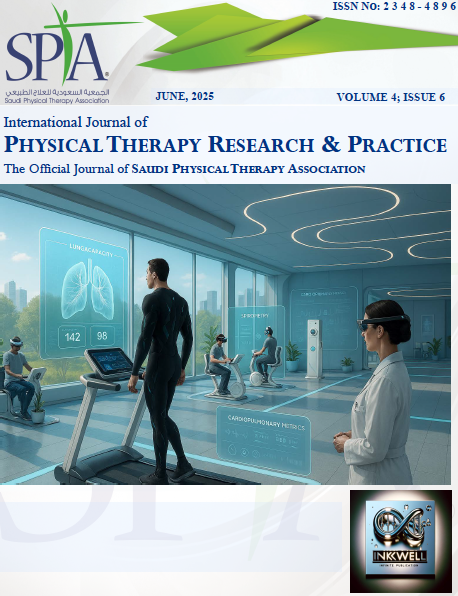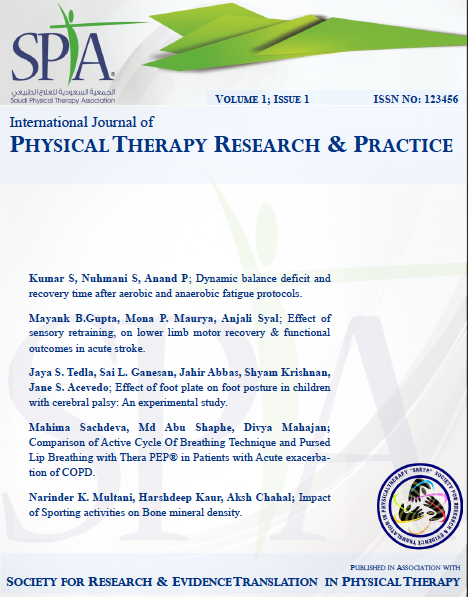Awareness and Knowledge of Role of Physiotherapy in The Management of Knee Osteoarthritis Among Al-Baha Populations
DOI:
https://doi.org/10.62464/ijoprp.v4i6.107Keywords:
Knee osteoarthritis, Physiotherapy, Awareness, barriers, Saudi Arabia.Abstract
Background: Knee osteoarthritis (OA) is a prevalent degenerative joint disease-causing significant morbidity and functional limitations globally. Physiotherapy plays a key role in managing knee OA, offering non-invasive approaches to reduce symptoms and improve joint function. This study aimed to assess awareness, knowledge, and perceived barriers to physiotherapy use for knee OA among adults in the Al-Baha region of Saudi Arabia—an underrepresented area in musculoskeletal health research with limited data on physiotherapy utilization. Methods: A cross-sectional study was conducted among 781 participants in Al-Baha using a structured, self-administered Arabic-language online questionnaire. The survey collected demographic data, awareness and knowledge of knee OA and physiotherapy, and identified barriers and motivators to physiotherapy utilization. The instrument was pilot-tested before deployment. Participants were selected through convenience sampling. Ethical approval was obtained from the Institutional Review Board of the Faculty of Medicine, Al-Baha University. Data were analyzed using SPSS; descriptive and inferential statistics were used, with associations tested at a significance level of p < 0.05. Results: Among participants, 96.5% were familiar with knee OA. Joint pain (84.0%) was the most recognized symptom; advanced age (78.7%) and low physical activity (65.0%) were commonly identified causes. Physiotherapy was acknowledged as a treatment by 83.1%, with exercise therapy being the most recognized (67.0%). However, 51.7% believed exercise could worsen pain. Barriers included a lack of awareness (66.9%) and limited facility access (54.6%). Chi-square analysis revealed significant associations between physiotherapy knowledge and age (p < 0.001) and occupation (p = 0.002), but not with gender, education, or nationality. Conclusion: This study highlights high general awareness of knee OA and physiotherapy but reveals substantial knowledge gaps and barriers to service access. Public education, enhanced service availability, and culturally relevant outreach are needed to improve physiotherapy uptake in knee OA care.
References

Downloads
Published
Issue
Section
License
Copyright (c) 2025 International Journal of Physical Therapy Research & Practice

This work is licensed under a Creative Commons Attribution-NonCommercial-NoDerivatives 4.0 International License.




